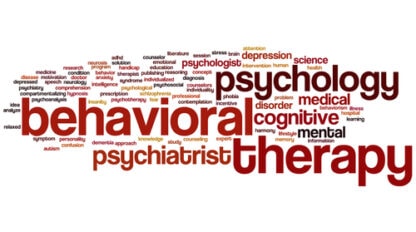In-Home Meal Support: What Is It and Is It Right for You?

For those struggling with an eating disorder or in recovery from an eating disorder, navigating meal planning can be overwhelming and bring on feelings of anxiety. Figuring out an ideal meal plan and schedule, along with the act of buying and preparing food can sometimes be deeply uncomfortable for those struggling or in recovery. This is where in-home meal support can help.
What is in-home meal support and how does it help?

In-home meal support involves working with a trained professional to help advise, plan, and prepare meals and establish healthy and comfortable eating habits long-term. For those affected by eating disorders, in-home meal support can provide relief to the constant stress involved in planning and sticking to a meal plan, but it is always important to consider whether this type of care is right for you or your loved one.
Who can benefit from in-home meal support?
In-Home Meal Support is most effective for those with large amounts of stress associated with planning, coordinating, and following through with meal plans. The steps to getting proper treatment for an eating disorder in the first place can be mentally taxing, and having to deal with a dietician, therapist, or other professionals at the same time can be challenging to keep up with, especially for those also struggling with severe social anxiety.
What are some other benefits of in-home meal support?
In addition to the direct eating disorder recovery benefits of planning and dietary customization, having a professional providing in-home meal support also provides support in dealing with the network of other eating disorder treatment professionals. Care coordination and administrative tasks can feel overwhelming, so by allowing the meal support specialist to handle most of the coordinating and planning, eating disordered clients are able to focus on the most important aspect of treatment – following through on it.
When is in-home meal support not a good fit, and how can I tell?
In-home meal support provides myriad benefits to those in eating disorder recovery and seems like an obvious choice, but it’s not right for everyone. For those searching for a more hands-off, less strictly regimented approach, in-home meal support may feel too invasive or overwhelming. Similarly, for those who may be too ashamed and embarrassed to be comfortable with this kind of assistance, it may introduce additional stress and be detrimental to recovery.
To determine if in-home meal support is an appropriate component of treatment, it’s important to fully understand the needs of yourself or your loved one, and work towards finding the treatment that meets those unique needs best. If you feel in-home meal support would be beneficial to someone you know but they are resistant or you’re not sure, you can start by slowly introducing a meal support plan on a part-time basis, and evaluating whether or not a more consistent plan would be helpful moving forward.

How to find in-home meal support near you
In-Home Meal Support is a team effort supported by a network of dietitians, physicians, therapists, and other trained, compassionate professionals. If you or a loved one is struggling with an eating disorder without a clear path forward, in-home meal support can be a life-changing step towards recovery.
At Intent Clinical, we provide top-tier, compassionate care coordination for those with eating disorders and can help find an in-home meal support specialist to help you. For more information on in-home meal support and other eating disorder recovery programs we can help with, please visit our Private Eating Disorder Services page, or contact us today for a consultation.
